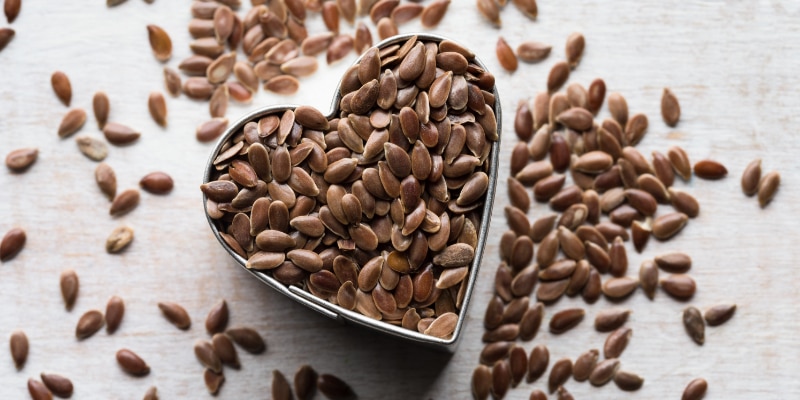by Melissa Chichester
Flaxseed!
After the collapse of the Roman Empire, Charles the Great (better known as Charlemagne) became its first emperor. He was so convinced about the health benefits of flaxseeds that he passed laws requiring his subjects to consume them.
Flaxseeds are one of the world’s oldest crops. Today, flaxseeds are still loved and considered an important superfood. Just one tablespoon provides fiber, omega-3 fatty acids, and other vitamins and minerals.
So what makes them so great that a king mandated them? Read on to find out.
Alpha linoleic acid is an essential omega-3 fatty acid or polyunsaturated fat. This means it is necessary for human growth and health, but your body can’t make omega-3 fatty acids, so you must get them from food. Flaxseeds are an excellent source of alpha linoleic acid. The National Academy of Sciences, which is recognized as the highest scientific body in the U.S., recommends that men consume 1.6 grams and women consume 1.1 grams of omega-3 fatty acids per day.
Lignans are polyphenols, a plant-based antioxidant. Lignans are present in many foods, including flaxseeds. According to the Linus Pauling Institute, flaxseeds contain the highest concentration of lignans when compared to other plants. In one study, flaxseed was found to provide approximately 2 mg of lignans per gram of ground flaxseed. The amount of lignans can vary depending on the processing method used. You can make these lignans more highly bioavailable by crushing flaxseeds.
Did you know that the American Journal of Lifestyle Medicine estimates that a whopping 95% of American children and adults do not meet the daily recommended intake for fiber? Flaxseeds are high in fiber. Just one teaspoon contains 3 grams of both insoluble and soluble fiber. Fiber supports colon health and digestive health.*
>>Four Questions and Answers About Fiber

Flaxseeds are a premium source of plant-based omega-3 fatty acids and omega-6 fatty acids that support heart health.* For people who do not like fish oil supplements or live vegetarian or vegan lifestyles, flaxseeds are an excellent way to increase your intake of these essential oils.
>>5 Plant-Based Sources of Omega-3 Fatty Acids
Did you know that you can substitute flaxseeds for eggs in recipes? This handy trick is perfect if you run out of eggs or do not eat eggs. Here’s how to do it: combine one tablespoon of flaxseed meal (milled flaxseeds, not in seed form) with 2 ½ tablespoons of water, and mix well until an egg-like substance forms.
Because of their high fiber content, flaxseeds may support blood sugar levels already within a normal range.*
Flaxseeds are a source of oleic acid, a natural omega-9 fatty acid that contributes to nerve health.*
Flaxseeds and flaxseed oil are incredible kitchen staples. Here are some ideas for using flaxseeds:
Flaxseeds can be found at most grocery stores and local health food stores. They’re an easy addition to any routine, and they are worth seeking out because of their incredible benefits.